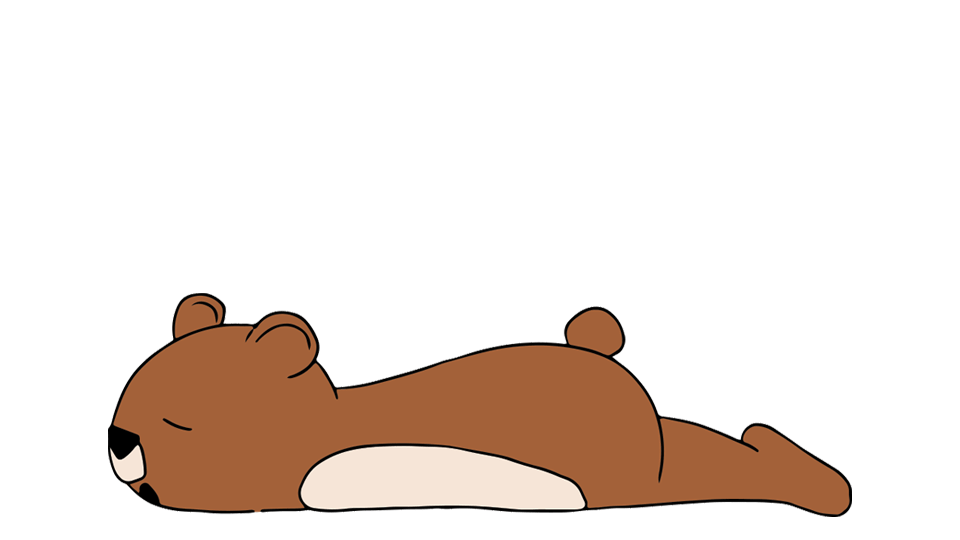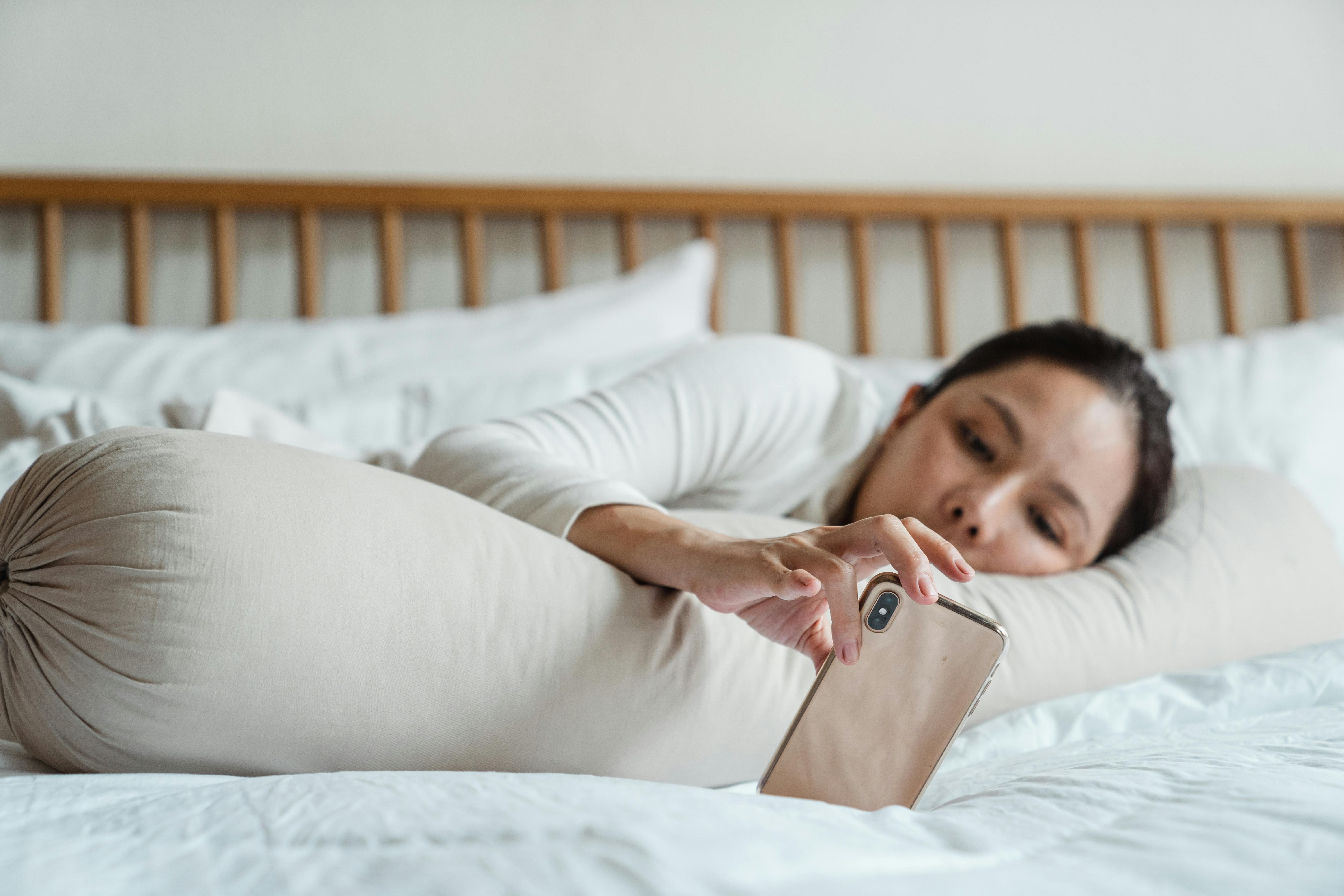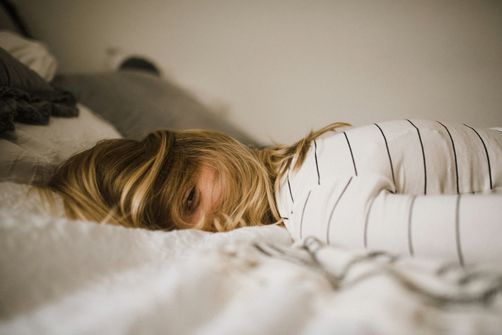
Foods That Boost Mood: A Practical Guide for Women to Support Emotional Health and Energy
The connection between what we eat and how we feel is powerful—certain foods provide the nutrients our brain needs to support mood, energy, and overal...

We all know sleep is important, but did you know it’s a total game changer for your menstrual health? Yep, how well (or how poorly) you sleep can seriously affect your hormones, mood, and how you feel throughout your cycle. The good news? There are some super easy ways to level up your sleep routine and keep your cycle on track. Let’s dive into some fun, practical tips to help you sleep better and feel better!

So, what’s the deal with sleep and your menstrual cycle? Sleep is like the secret sauce that helps your body regulate hormones, especially the big players like estrogen and progesterone. When you don’t catch enough Z’s, your hormones can get thrown off, leading to irregular periods, crankier PMS symptoms, and all-around meh vibes.
Stat to Know: A study published in BMC Womens Health found that women who experience sleep disturbances are more likely to have irregular periods and super intense PMS. Double whammy, right?
Tip: Stick to a regular sleep schedule—even on weekends (I know, it’s tempting to Netflix-binge till 2 AM, but your hormones will thank you). Aim for 7-9 hours of solid sleep every night. You’ve got this!
Your bedroom should be your ultimate chill zone. Think cozy, calm, and completely geared toward rest:
Quick Tip: Put down the phone! The Sleep Science says unplugging before bed makes a huge difference. No scrolling under the covers!

What you munch on can have a huge impact on how well you sleep:
Fun Fact: A study found that people who ate more fruits and veggies got better sleep. So toss some leafy greens into your day for a better night’s rest!
Wind down with some calming rituals before hitting the sheets:
Tip: According to Annals of the New York Academy of Sciences, mindfulness can actually improve your sleep and help you deal with insomnia. Who knew Zen could lead to Z’s?
Exercise is fab for your health, but timing matters when it comes to sleep:
Quick Fact: Studies show that regular exercisers sleep better. So, lace up those sneakers—you’re setting yourself up for sweet dreams!
Keeping track of how you sleep and how it relates to your menstrual cycle can help you understand what’s going on:
Tip: If you notice sleep issues popping up during certain phases (like before your period), adjust your routine accordingly. Knowledge is power, right?

Sometimes, even with the best habits, sleep can still be elusive. That’s where a few well-chosen supplements can step in and help:
Quick Tip: Always check with your healthcare provider before adding supplements to your routine to make sure they’re right for you.
If you’re constantly battling sleep issues, it might be time to get some expert advice. Conditions like insomnia or sleep apnea can seriously mess with your life—and your cycle.
Quick Note: The NHS recommends seeing a specialist if sleep problems are messing with your daily life. Don’t hesitate to ask for help!
Q: How does sleep affect my menstrual cycle? A: Sleep plays a crucial role in regulating hormones like estrogen and progesterone, which are essential for a regular menstrual cycle. Poor sleep can lead to hormonal imbalances, causing irregular periods and intensified PMS symptoms.
Q: Can poor sleep make my PMS symptoms worse? A: Yes, poor sleep can worsen PMS symptoms such as irritability, bloating, and fatigue. When you’re sleep-deprived, your emotional resilience decreases, making it harder to manage these symptoms.
Q: Are certain phases of the menstrual cycle more prone to sleep disturbances? A: Yes, many women experience sleep difficulties during the luteal phase, which is the week leading up to menstruation. Hormonal changes during this phase can make it harder to fall asleep or stay asleep.
Q: What can I do to improve my sleep quality? A: To improve sleep, maintain a consistent bedtime, keep your bedroom cool (60-67°F), reduce screen time before bed, and try relaxation techniques like meditation or gentle yoga. Supplements like magnesium or melatonin may also help, but consult a doctor before use.
Q: Can tracking my menstrual cycle help me understand my sleep patterns? A: Absolutely! Tracking your cycle can help you identify patterns, like sleep disturbances during certain phases. Apps like Clue or MyFlo are great tools to monitor both your cycle and sleep quality.
Q: Do supplements really help with sleep and menstrual health? A: Supplements like magnesium, melatonin, or herbal remedies like Vitex can promote better sleep and support menstrual health. However, always consult your healthcare provider before adding any supplements to your routine.
Q: How does exercise impact sleep during my menstrual cycle? A: Regular exercise can improve your sleep quality and overall health. Just make sure to avoid vigorous workouts close to bedtime, as they can interfere with your ability to fall asleep.
Q: When should I seek professional help for sleep issues? A: If you consistently struggle with sleep and it’s affecting your daily life, or you suspect conditions like insomnia or sleep apnea, it’s a good idea to consult a healthcare professional or sleep specialist.
This article is for informational purposes only and is not intended to replace professional medical advice, diagnosis, or treatment. Always consult with a healthcare professional regarding any concerns you may have about your menstrual health, sleep issues, or before starting any supplements. The tips and recommendations in this article may not be suitable for everyone, and individual results may vary.
Optimizing your sleep is key to feeling your best during your menstrual cycle. By creating a sleep-friendly space, being mindful of what you eat, adding relaxation techniques, staying active, tracking your cycle, trying the right supplements, and reaching out for help when needed, you’ll set yourself up for better sleep and a healthier, happier cycle.
Remember, sleep isn’t just a bonus—it’s an essential part of your wellness journey. So, embrace these tips, listen to your body, and get ready to sleep like a queen! 🌙

The connection between what we eat and how we feel is powerful—certain foods provide the nutrients our brain needs to support mood, energy, and overal...

In a world where social drinking often feels like the norm, mindful drinking offers an empowering way for women to reflect on their relationship with ...

In today’s hyperconnected world, online wellness communities have become essential spaces for many women. Whether they seek advice on mental health, f...

Menstrual synchrony—the phenomenon where women who live or spend a lot of time together seem to align their menstrual cycles—has intrigued researchers...

You’ve heard about the importance of sleep, and you know gut health is vital, but did you know these two are deeply connected? And for women, this rel...